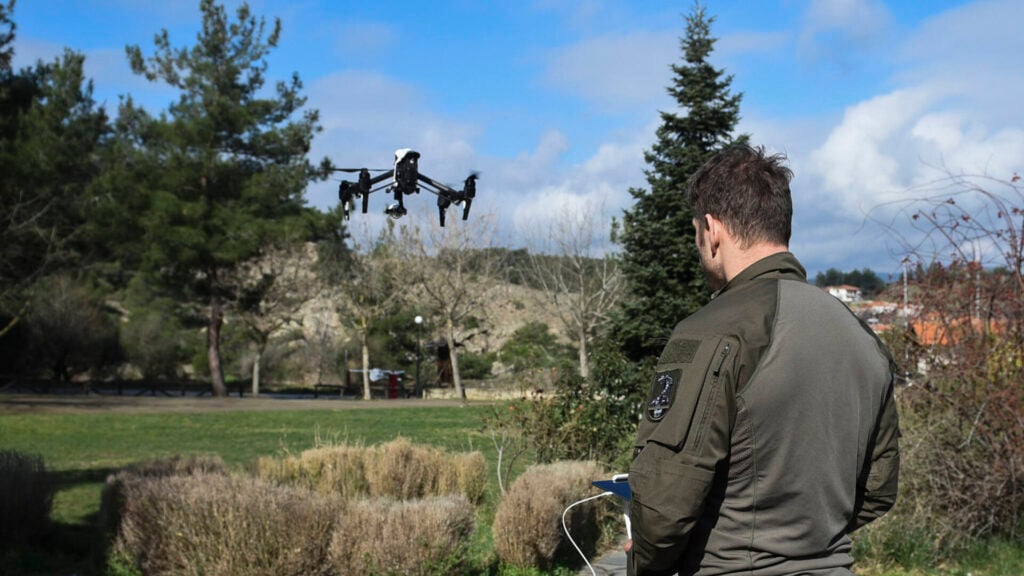A Greek-made anti-drone system has demonstrated its effectiveness during a European Union patrol in the Red Sea, marking a significant step in Greece’s plans to expand its domestic defence industry.
According to Reuters, the system, known as Centauros and developed by the state-run Hellenic Aerospace Industry (HAI), was deployed for the first-time last year.
During the operation, it successfully detected and neutralised two drones launched by Yemen’s Houthi forces, which have been targeting commercial vessels in the region.
Two additional drones retreated after their systems were jammed, according to HAI’s electronics director Kyriakos Enotiadis.
The system’s performance has bolstered Greece’s broader €30 billion military modernisation program, which aims to overhaul the country’s armed forces by 2036 and increase domestic defence production.
Centauros can detect drones from up to 150 kilometres away and engage targets within a 25-kilometre radius.
The Greek government plans to install the system across the naval fleet.
“This is the only battle-tested anti-drone system manufactured in Europe,” Enotiadis said.
Greece currently operates a limited number of intelligence, surveillance and reconnaissance (ISR) drones, mostly imported from countries like France and Israel.
Under the defence program, Greece intends to develop and deploy domestically produced anti-drone and combat drone systems, including a planned ballistic missile defence system named Achilles Shield.
Turkey, a NATO member and long-time regional rival, is a major player in drone manufacturing and exports. Greece, which allocates nearly 3.5 per cent of its GDP to defence spending, is seeking to boost its own defence technology capacity.
The domestic industry currently represents only a small portion of that expenditure.
The government plans to invest approximately €800 million in defence innovation over the next decade.
The Hellenic Centre for Defence Innovation (HCDI), a new agency under the Defence Ministry, is coordinating the effort.
“Our aim is to match our annual defence spending with an equal amount in exports,” said HCDI CEO Pantelis Tzortzakis.
Private Greek company Altus, in partnership with France’s MBDA, has developed Kerveros, a vertical take-off and landing drone capable of carrying more than 30 kilograms, including anti-tank weaponry.
Altus already exports ISR drones to five countries.
“I’m optimistic about the future of the Greek drone industry,” said Altus co-owner Zacharias Sarris. “This technology is critical for Greece’s strategic needs.”
HAI plans to begin mass production in 2026 of two portable anti-drone systems, Iperion and Telemachus, designed to counter drone swarms and small, weaponised UAVs.
The company also aims to launch its first large UAV, Archytas, named after the ancient Greek mathematician credited with designing an early flying device in the 4th century BC.
“We aim for this UAV to be the best in its category,” said HAI’s director of new products, Nikos Koklas.








